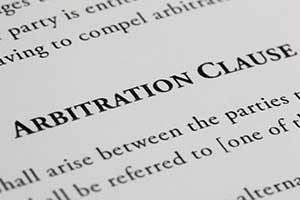In a recent blog post, Lindley Law discussed the Fourth Circuit Court of Appeals ruling in Ameican Association of Political Consultants, Inc. v. FCC, which addressed First Amendment questions regarding the regulation of “robocalls” related to debt collection for government-backed loans. The United States Congress recently announced proposed legislation to combat the practice of robocalling: the Pallone-Thune TRACED Act (the “TRACED Act”). The Proposed Legislation The TRACED Act will combine and reconcile the Telephone Robocall Abuse Criminal Enforcement and Deterrence Act, which passed in the Senate in May, with the Stopping Bad Robocalls Act, which passed in the House of Representatives in July. The separate bills created new…
-
-
AMERICAN ASSOCIATION OF POLITICAL CONSULTANTS, INC. v. FCC: “Robocalls” and the First Amendment
In a recent decision, the Fourth Circuit Court of Appeals addressed the First Amendment implications of federal debt-collection automated calls. More specifically, the court analyzed the Telephone Consumer Protection Act (the “TCPA”), a law which protected such calls as an exemption to its general prohibition against calls to personal phones using an automated telephone dialing system. What is the TCPA? In 1991, Congress enacted the TCPA to protect consumers from unwanted, unsolicited, and intrusive automated calls, which were becoming ubiquitous. Initially, the law recognized two exemptions to the general prohibition on the practice commonly known as robocalling: calls to notify the public of an emergency and calls made…
-
FREDERICK ALLEN and NAUTILUS PRODUCTIONS, LLC v. ROY A. COOPER, III, et al.: a Battle over Piracy and Sunken Treasure
The plaintiffs in Frederick L. Allen and Nautilus Productions, LLC v. Roy A. Cooper, III,, et al., a four-year civil lawsuit over the rights to video and photographic footage of the recovery of the wreckage of the Queen Anne’s Revenge (the ship captained by the infamous pirate known as Blackbeard), recently filed a petition for a writ of certiorari seeking the United States Supreme Court to rule on the dispute. The History of the Queen Anne’s Revenge In the early eighteenth century, Blackbeard commandeered the slave ship La Concorde, renaming it the Queen Anne’s Revenge and captaining the ship for years near the Outer Banks of North Carolina. …
-
Fourth Circuit: Arbitration Agreement in Employee Handbook Not Binding
A recent decision by the United States Court of Appeals for the Fourth Circuit ruled that a North Carolina employee suing under federal and North Carolina law for wage and hour violations was not required to participate in arbitration despite an arbitration clause in her employee handbook.[1] The Fourth Circuit acknowledged that North Carolina law would ordinarily bind the employee via implied consent to the clause, but she signed an acknowledgement form upon receipt of the handbook that expressly stated the handbook provisions did not constitute a binding contract. Rose Lorenzo, an employee of Prime Communications, LP, managed a…


